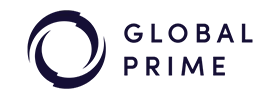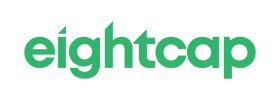The foreign exchange market has become exceptionally popular among traders, giving them the opportunity to capitalize on fluctuations in global currencies. As a result, there are now numerous online brokers that operate in Europe, the US, Australia, and elsewhere. Choosing a forex broker, however, requires a thoughtful evaluation of multiple key factors, which is easier said than done. With this in mind, our team set out to introduce traders to the various factors that can make or break a forex broker, and assist them in picking a broker that caters to their needs and preferences.
Below you can find a list with regulated and trustworthy Forex brokers:
Top 15 Forex Brokers
-
Fusion Markets
- Australia regulated broker
- MT4, MT5, TradingView, Ctrader
- Leverage up to 500
Trading InstrumentsDeposit Methods- Commodities CFDs
- Crypto CFDs
- Forex CFDs
- Indices CFDs
- Metals CFDs
- Stock CFDs
-
FP Markets
- Australia and CySEC regulated broker
- MT4/MT5, TradingView, Ctrader, Iress
- EUR/USD spread from 0.0 pips
Trading InstrumentsDeposit Methods- Commodities CFDs
- Crypto CFDs
- Energy CFDs
- Forex CFDs
- Indices CFDs
- Metals CFDs
- Stock CFDs
-
ActivTrades
- Winner of 20+ Global Awards
- MT4/MT5, TradingView
- Leverage up to 1:400
Trading InstrumentsDeposit Methods- Bonds CFDs
- Commodities CFDs
- Crypto CFDs
- ETF CFDs
- Forex CFDs
- Indices CFDs
- Share CFDs
-
Pepperstone
- Australia and CySEC regulated broker
- MT4/MT5, TradingView, Ctrader, Iress
- EUR/USD spread from 0.0 pips
Trading InstrumentsDeposit Methods- Commodities CFDs
- Crypto CFDs
- Energy CFDs
- Forex CFDs
- Indices CFDs
- Metals CFDs
- Stock CFDs
-
Plus500
- Multi-Level Regulated Broker
- Proprietary trading platforms
- Easy to use mobile app
Trading InstrumentsDeposit Methods- Commodities CFDs
- Crypto CFDs
- Energy CFDs
- ETF CFDs
- Forex CFDs
- Indices CFDs
- Metals CFDs
- Share CFDs
- Stock CFDs
- US Stock CFDs
-
Global Prime
- Australia regulated broker
- Advanced MT4
- $0 Minimum Account Size
Trading InstrumentsDeposit Methods- Commodities CFDs
- Forex CFDs
- Indices CFDs
- Metals CFDs
-
BlackBull Markets
- Broker boasting lightning-fast execution speed
- ECN brokers with tight spreads from 0.0 pips
- $0 minimum deposit requirement
Trading InstrumentsDeposit Methods- Commodities CFDs
- Crypto CFDs
- Forex CFDs
- Indices CFDs
- Metals CFDs
- Stock CFDs
-
eToro
- Popular broker for social trading
- Trading is conducted on innovative in-house platform
- Offers both investing and trading products
Trading InstrumentsDeposit Methods- Commodities CFDs
- Crypto CFDs
- ETF CFDs
- Forex CFDs
- Indices CFDs
- Metals CFDs
- Share CFDs
- Stock CFDs
- US Stock CFDs
-
FxPro
- NDD broker offering deep liquidity and ultra-fast execution
- Over 99% instant order executions with no requotes
- Supports MT4, MT5, cTrader, and a proprietary platform
Trading InstrumentsDeposit Methods- Commodities CFDs
- Crypto CFDs
- Energy CFDs
- Forex CFDs
- Indices CFDs
- Metals CFDs
- Stock CFDs
-
Axi
- Raw spreads start from 0.0 pips
- Offers order execution faster than standard ECN model
- Axi Select Funded Trader Program offers funding up to $1 million
Trading InstrumentsDeposit Methods- Commodities CFDs
- Crypto CFDs
- Forex CFDs
- Indices CFDs
- Metals CFDs
- Stock CFDs
-
Vantage FX
- Broker offering some of the lowest spreads from 0.0 pips
- Operating in multiple markets under licenses from tier-1 regulators
- Provides a range of account types with great trading conditions
Trading InstrumentsDeposit Methods- Commodities CFDs
- Crypto CFDs
- Energy CFDs
- Forex CFDs
- Indices CFDs
- Metals CFDs
- Stock CFDs
-
IG
- Offers different account types, including DMA (Direct Market Access) one
- Offers turbo warrants on forex pairs, commodities, indices, and equities
- Supports popular platforms like MT4 and TradingView as well as ProRealTime, L2, and more
Trading InstrumentsDeposit Methods- Bond Futures
- Bond Options
- Bond Spread Betting
- Bonds CFDs
- Commodities CFDs
- Commodity Futures
- Commodity Options
- Commodity Spread Betting
- Crypto CFDs
- Crypto Options
- Crypto Spread Betting
- Currency Futures
- Energy CFDs
- Energy Futures
- Energy Options
- Energy Spread Betting
- ETF CFDs
- ETF Options
- ETF Spread Betting
- Forex CFDs
- Forex Options
- Forex Spread Betting
- Index Futures
- Index Options
- Index Spread Betting
- Indices CFDs
- Interest Rate Futures
- Metal Futures
- Metal Options
- Metals CFDs
- Metals Spread Betting
- Share CFDs
- Stock CFDs
- Stock Options
- Stock Spread Betting
- US Stock CFDs
- US Stock Options
- US Stock Spread Betting
-
Markets.com
- Featuring a wide range of CFD assets across 7 markets
- Supports popular platforms like MT4 and MT5
- Social trading app enables smooth trading alongside proven signal providers
Trading InstrumentsDeposit Methods- Bonds CFDs
- Commodities CFDs
- Crypto CFDs
- ETF CFDs
- Forex CFDs
- Indices CFDs
- Metals CFDs
- Share CFDs
-
Eightcap
- Traders can enjoy competitive trading conditions through different account types
- Offers access to over 800 CFD markets through TradingView
- Platforms like MT4 and MT5 enable multi-device trading
Trading InstrumentsDeposit Methods- Commodities CFDs
- Crypto CFDs
- Forex CFDs
- Indices CFDs
- Share CFDs
-
XM Group
- XM provides great trading experiences using MetaTrader 4 and MetaTrader 5, which are improved by personalized features.
- Zero commission accounts are available
- Top-tier regulation from CySEC, ASIC, FSC, and DFSA oversee XM's operations, assuring transparency and client safety.
Trading InstrumentsDeposit Methods- Bonds CFDs
- Commodities CFDs
- Crypto CFDs
- Energy CFDs
- ETF CFDs
- Forex CFDs
- Forex Options
- Index Options
- Indices CFDs
- Metals CFDs
- Share CFDs
- Stock CFDs
- Stock Options
- US Stock Options
Brokers Compared by Spread
| Brand | Commission per lot | |
|---|---|---|
| Fusion Markets | AVG 0.93 pips | $0 Classic Account, $4.50 round turn on Zero Account |
| FP Markets | AVG 1.2 pips | $0 Standard Account; $6 round turn on Pro Account |
| ActivTrades | AVG 0.5 pips | $0 |
| Pepperstone | AVG 1.1 pips | $0 (Standard Account), $7 round-turn (Razor Account, TradingView, MT4, MT5), $6 round-turn (Razor Account, cTrader) |
| Plus500 | AVG 1.4 pips | $0 |
| Global Prime | AVG 0.96 pips | $0 Standard Accounts; $7 round turn on Raw Accounts |
| BlackBull Markets | AVG 1 pips | $0 (ECN Standard Account), $6 round turn (ECN Prime Account), $4 round turn (ECN Institutional Account) |
| eToro | AVG 1 pips | $1 or $2 (stocks only) |
| FxPro | AVG 1.5 pips | $0 on Standard Account; $3.5 per side on Raw+ and Elite Accounts |
| Axi | AVG 1.2 pips | $0 on Standard Account; $7 round trip on Pro Account |
| Vantage FX | AVG 0.15 pips | $3 per side on Raw; $1.50 per side on Pro |
| IG | MIN 0.6 pips | $0 |
| Markets.com | AVG 0.8 pips | $0 |
| Eightcap | AVG 1.1 pips | $0 on Standard and TradingView Accounts; $7 round turn on Raw Accounts |
| XM Group | AVG 1.2 pips | $0 Ultra Low Micro and Ultra Low Standard Accounts; $3.50 per side XM Zero Account |
FX Brokers Deposit Method Comparison
| Brand | Minimum deposit | |
|---|---|---|
| Fusion Markets | $0 | |
| FP Markets | $50 (AU$100) | |
| ActivTrades | $0 | |
| Pepperstone | $0 | |
| Plus500 | $100 | |
| Global Prime | $0 | |
| BlackBull Markets | $0 (Standard)$2,000 (Prime)$20,000 (Institutional) | |
| eToro | $50 or $100 based on country ($10 for the UK) | |
| FxPro | $100 | |
| Axi | $0 | |
| Vantage FX | $50 | |
| IG | $50 | |
| Markets.com | $100 | |
| Eightcap | $100 | |
| XM Group | $5 |
The Best Forex Brokers by Regulator
| Brand | Maximum leverage | |
|---|---|---|
| Fusion Markets | 1:500 (ASIC | Pro Account), 1:30 (ASIC | Retail Account), 1:500 (VFSC | Retail Account) | |
| FP Markets | 1:500 (CySEC | Pro Account), 1:30 (ASIC | Retail Account), 1:30 (CySEC | Retail Account), 1:500 (FSAS | Retail Account) | |
| ActivTrades | 1:400 (CMVM | Pro Account), 1:30 (CMVM | Retail Account), 1:1000 (FSC), 1:200 (SCB) | |
| Pepperstone | 1:500 (CySEC | Pro Account), 1:500 (SCB | Pro Account), 1:30 (ASIC | Retail Account), 1:30 (CySEC | Retail Account), 1:30 (DFSA | Retail Account), 1:30 (FCA | Retail Account), 1:200 (SCB | Retail Account) | |
| Plus500 | 1:300 (Pro Account), 1:30 (ASIC | Retail Account), 1:30 (BaFin | Retail Account), 1:30 (CySEC | Retail Account), 1:30 (FCA | Retail Account), 1:30 (FMA | Retail Account), 1:30 (SFSA | Retail Account), 1:30 (DFSA), 1:300 (FSAS), 1:20 (MAS), 1:300 (SCB) | |
| Global Prime | 1:500 (ASIC | Pro Account), 1:30 (ASIC | Retail Account), 1:500 (VFSC) | |
| BlackBull Markets | 1:500 (FMA), 1:500 (FSAS) | |
| eToro | 1:400 (CySEC | Pro Account), 1:30 (CySEC | Retail Account), 1:400 (FSAS | Retail Account) | |
| FxPro | 1:30 (CySEC | Retail Account), 1:30 (FCA | Retail Account), 1:10000 (SCB | Retail Account) | |
| Axi | 1:500 (Elite Account), 1:400 (Pro Account), 1:30 (ASIC | Retail Account), 1:30 (CySEC | Retail Account), 1:30 (DFSA | Retail Account), 1:30 (FCA | Retail Account), 1:500 (SVGFSA) | |
| Vantage FX | 1:500 (ASIC | Pro Account), 1:30 (ASIC | Retail Account), 1:500 (CIMA | Retail Account), 1:30 (FCA | Retail Account) | |
| IG | 1:222 (BaFin | Pro Account), 1:30 (ASIC | Retail Account), 1:30 (BaFin | Retail Account), 1:200 (BMA | Retail Account), 1:30 (FCA | Retail Account) | |
| Markets.com | 1:294 (CySEC | Pro Account), 1:30 (CySEC | Retail Account), 1:300 (FSCA) | |
| Eightcap | 1:30 (ASIC | Retail Account), 1:30 (CySEC | Retail Account), 1:30 (FCA | Retail Account), 1:500 (SCB | Retail Account) | |
| XM Group | 1:30 (CySEC | Retail Account), 1:1000 (IFSC | Retail Account) |
Forex Brokers Platform Availability
| Brand | FX pairs to trade | |
|---|---|---|
| Fusion Markets | cTrader, MetaTrader 4, MetaTrader 5, TradingView | |
| FP Markets | cTrader, TradingView | |
| ActivTrades | MetaTrader 4, MetaTrader 5, Proprietary Web, TradingView | |
| Pepperstone | MetaTrader 4, MetaTrader 5, Proprietary Mobile, Proprietary Web | |
| Plus500 | Proprietary Mobile, Proprietary Web | |
| Global Prime | MetaTrader 4 | |
| BlackBull Markets | cTrader, MetaTrader 4, MetaTrader 5, TradingView | |
| eToro | Proprietary | |
| FxPro | cTrader, MetaTrader 4, MetaTrader 5 | |
| Axi | MetaTrader 4 | |
| Vantage FX | MetaTrader 4, MetaTrader 5, Proprietary Web, TradingView | |
| IG | MetaTrader 4, Proprietary Web, TradingView | |
| Markets.com | MetaTrader 4, MetaTrader 5, Proprietary Web, TradingView | |
| Eightcap | MetaTrader 4, MetaTrader 5, TradingView | |
| XM Group | MetaTrader 4, MetaTrader 4 MultiTerminal, MetaTrader 5, Proprietary Mobile, Proprietary Web |
Comprehensive Comparison of the Best Forex Brokers
Regulation and Security
The first factor traders should keep in mind when assessing a given broker is its regulatory status. Forex trading is a global market with numerous supervisory bodies overseeing its operations. The primary goal of these entities is to ensure transparency, fairness, and trader protection. The Financial Conduct Authority (FCA), the Commodity Futures Trading Commission (CFTC), and the Cyprus Securities and Exchange Commission (CySEC) are a few of the regulators that oversee their respective jurisdictions’ forex markets. In the European Union, the European Securities and Markets Authority (ESMA) sets the local forex trading guidelines.
Regulators have implemented various measures to safeguard traders, including capital requirements, leverage limits, and anti-money laundering (AML) and know-your-customer (KYC) policies. Additionally, some jurisdictions have introduced particularly strict regulations, such as the Markets in Financial Instruments Directive II (MiFID II) in the EU, to enhance investor protection and promote market integrity. A robust regulatory framework is essential for maintaining trust and confidence in the forex market.
Security is another top priority, and reputable brokers have implemented robust measures to safeguard their clients’ money and personal data. One key aspect is the segregation of user funds. Most brokers are obligated to keep client deposits separate from their own operating capital. This ensures that even in the event of a broker’s insolvency, traders’ funds remain protected. Additionally, many brokers utilize advanced encryption technologies, such as SSL encryption and two-factor authentication, to protect client data.
Range of Markets
Next, you should strive to find a broker with a wide range of instruments. The forex market, in particular, boasts a diverse range of currency pairs, each with its unique characteristics. Major currency pairs, such as EUR/USD, are the most widely traded and liquid, with high market participation and tight spreads. Minors like USD/CHF provide a balance between liquidity and volatility, while exotics, such as USD/MXN, are less liquid and more volatile, with wider spreads and higher risks. A good forex broker should offer all currency pairs you are interested in.
Typically, brokers will allow you to trade forex pairs via spread betting, spot trading, or contracts for difference (CFDs). CFDs are especially popular as they enable traders to speculate on currency price movements without ownership, and these contracts do not expire.
Apart from currency pairs, many forex brokers provide their clients with opportunities to trade indices, such as the S&P 500, and individual stocks from major exchanges. Commodities, like gold and oil, and cryptocurrencies, like Bitcoin, are also popular among online traders. These instruments provide opportunities for diversification and for traders to capitalize on market trends.
Spreads and Other Costs
Novice forex traders are often unaware of the various fees associated with online trading. These costs can significantly impact one’s profitability. One of the primary fees is the spread, which is the difference between the bid and ask prices of a currency pair. Spreads can vary widely depending on a person’s broker, their trading account type, and the instrument itself.
In many cases, all of the trading costs are built into the spread. However, plenty of brokers also charge commissions on trades, often in the ballpark of several dollars per trade. Some brokers also impose inactivity fees, which are charged when an account remains dormant for a specified period.
Deposit fees are uncommon, but you are likely to come across a broker that demands a percentage of the transaction amount when it comes to withdrawals. Alternatively, a fixed fee might apply. Furthermore, keep in mind that you might incur fees from your banking institution even if you find a fee-free broker.
Understanding these fees is crucial as it will allow you to make informed decisions and manage your trading costs effectively. It is essential to review the fee structure of a broker before opening an account to ensure it aligns with your trading needs and goals. Make sure to compare the fees across different brokers as well, as you might find a more affordable option than the platform you were eyeing.
Deposits and Withdrawals
In order to begin trading with real funds, you must first top up your forex account with cash. It is therefore essential for the broker you pick to support deposit solutions you find convenient. At a good online broker, Forex traders are provided with various options for depositing funds into their accounts. Many brokers accept traditional payment methods such as bank wire transfers, which can take several business days to process. Credit and debit cards are also widely accepted, and they are known for ensuring faster processing times, typically within 1-3 business days. Some brokers also accept deposits via e-wallet services like PayPal, which can facilitate instant deposits. Additionally, you might find brokers that include mobile-friendly payment options or cryptocurrencies in their selection of accepted deposit methods.
Of course, withdrawals are just as crucial as deposits. Typically, you will be able to cash out your finds via a range of methods. Bank wire transfers are a common option, allowing traders to transfer funds directly to their bank accounts. Such withdrawal requests often take up to a week to process. There are brokers that consider Skrill and other digital wallets to be viable options, and these options can facilitate faster withdrawals, often within several business days. Cashing out via crypto might also be possible depending on the broker.
Do note that the availability of given financial solutions or even the processing times can vary based on one’s country of residence. Thus, make sure to check the deposit and withdrawal sections of your broker’s FAQ for further details, and do not hesitate to contact the support team if anything seems unclear.
Leverage Limits
If you are interested in trading forex, you should become familiar with leverage and its role in the forex market. It is essentially a loan from the broker, allowing forex enthusiasts to trade with positions larger than their capital and enabling them to amplify their potential gains. It also increases their risk exposure, however, and to protect traders from excessive leverage, regulatory bodies have established leverage limits.
If you stick to regulated brokers, the leverage you will have at your disposal will be reliant on your region’s laws. In the European Union and Australia, for instance, the maximum leverage allowed for retail traders is 1:30, while in the United States, it is 1:50. These limits aim to prevent traders from over-leveraging and incurring significant losses. Some regulators are far more lax, allowing licensees to set retail leverage limits of 1:500 or higher. Examples include the Vanuatu Financial Services Commission and the Financial Services Authority (Seychelles).
It is best to go with brokers that implement robust risk management measures, such as margin calls and stop-loss orders, to help you manage your risk exposure. Some brokers may also offer adjustable leverage limits.
Finally, it is worth noting that leverage caps can vary depending on the account type. Many brokers offer higher leverage to professional traders or institutional clients. At European brokers, professionals usually enjoy leverage caps of 1:500.
Trading Platforms
Forex trading platforms are the backbone of online trading, providing traders with the tools and features they need to succeed. Thus, when you are looking for your broker of choice, platforms should be one of the main factors to consider. Here are some of the most popular forex platforms, each with its own unique features and benefits:
- MetaTrader 4: This is a popular and user-friendly platform characterized by its advanced charting tools, technical indicators, and automated trading capabilities. MT4 is often considered the go-to option for beginners.
- MetaTrader 5: An upgraded version of MT4 offering additional features such as multi-asset trading, advanced risk management, and improved charting capabilities.
- TradingView: This web-based platform boasts real-time market data, advanced charting tools, and a community-driven approach to trading.
- cTrader: A professional-grade platform that features advanced charting tools, automated trading capabilities, and a range of order types, including OCO (One Cancels the Other) orders.
There are also brokers that have developed their own trading software. Some of them even make their proprietary platform the only option, rendering them unsuitable for traders who prefer flexibility. Such brokers are somewhat of a rarity, however. We should also mention that if you prefer to trade on the go, it is best to go with a broker that provides its own trading application or supports the iOS and Android app versions of MT4, MT5, or TradingView.
Is the Broker Suitable for Novice Traders?
Those who are yet to dip their toes into the forex market are advised to look for beginner-friendly brokers. Many brokers cater specifically to new traders, offering features that can help them get started. Some of the key benefits of such brokers include:
- Demo accounts: Demo accounts allow new traders to practice trading with virtual funds. Typically, clients can use these accounts for as long as they wish and only switch to live trading when they are ready.
- Educational content: Brokers often provide a wealth of educational resources, including tutorials, videos, and trading guides. Depending on the broker, traders may also be able to attend webinars.
- Low deposit minimums: Many brokers have low or no minimum deposit requirements, making it easier for new traders to get started.
A broker that checks all of the above boxes will be a suitable option for anyone who is not confident in their trading skills just yet. By choosing a broker that looks out for novices, new traders can set themselves up for success and achieve their trading goals.
Customer Support
When selecting a forex broker, the quality of customer support is a crucial factor to consider. Being able to rely on the customer service team can make a significant difference in a trader’s experience.
Customer service agents who provide clear explanations, concise answers, and proactive solutions can help resolve issues efficiently. Additionally, consider a broker that provides various support channels, such as phone, email, live chat, and social media. You should also look for a broker that provides 24/5 support in your language.
Last but not least, it is advised that you check out user feedback regarding a specific broker’s customer support on websites like Trustpilot. This way, you will get a better idea of how the support team performs in practice.
Other Factors to Consider
In addition to the considerations we have covered thus far, there are a couple of other factors that can impact your trading experience and should thus be considered. Execution speed, for instance, refers to the time it takes for a trade to be executed. A fast execution speed can help traders capitalize on market opportunities and minimize losses. Some brokers offer virtual private server (VPS) hosting, which can provide a stable and secure environment for trading, even during periods of high market volatility, and further improve execution speeds.
Trade size is another critical consideration, as it affects the amount of risk and potential reward associated with each trade. Brokers that offer versatile trade sizes can accommodate traders with varying risk appetites and investment levels. There are brokers, for instance, whose minimum and maximum trade size limits are 0.01 and 1,000 lots, respectively.
In addition, if the idea of being able to follow and replicate the strategies of successful investors seems enticing, you could also consider going with a broker that facilitates copy trading. Plenty of brokers offer unique platforms made specifically to accommodate copy traders.
All in all, a reliable broker can help traders achieve their goals by providing fast and efficient execution, a stable trading platform, flexible limits, and more. This is why it is important to carefully assess the various aspects of multiple brokers if they plan to trade forex online.
Why You Should Trust RationalFX
When it comes to making informed decisions about forex brokers, it's essential to rely on trustworthy sources. RationalFX, a company with over 20 years of experience since its founding in 2005, has established itself as a credible authority in the industry. With an impressive collection of over 2500 reviews on Trustpilot, boasting a score of 4.2, it's clear that Rational FX has built a reputation for providing reliable and unbiased information.
What sets Rational FX apart is its rigorous evaluation process, which considers over 30 different criteria when selecting forex brokers. This comprehensive approach ensures that every aspect of a broker's service is taken in consideration, including regulation, forex spreads, trading platforms, deposit methods, and reputation. With its wealth of experience, transparent review process, and outstanding customer feedback, Rational FX is a trusted source for anyone seeking reliable information on forex brokers. You can reach us via e-mail at feedback@rationalfx.com or contact us through our social media accounts here: Facebook, YouTube, or leave a feedback here.



















